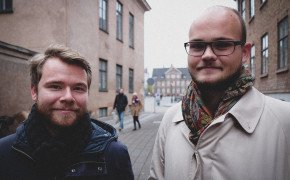Universitetsavisen
Nørregade 10
1165 København K
Tlf: 35 32 28 98 (mon-thurs)
E-mail: uni-avis@adm.ku.dk
Theme
According to department administrator Anne Marie Shuhaiber Clemensen it is to her advantage as a candidate for the board that she is not affiliated with an interest group: »I don’t have a political agenda«.

If elected to the board, Konservative Studerende [Conservative Students, ed.] want to minimize bureaucracy and put an end to the ‘culture of victimhood’.

Olaf Nielsen and Annette Lassen represent different subject areas, but they share the same gloomy conclusion about decision-making at the University of Copenhagen: A myopic focus on economy and a disregard for the issues concerning the average researcher has placed academia under pressure.

The Student Council’s top candidate, Olivia Boesen, wants to ensure that the board dedicates resources to help students deal with stress and loneliness.

Thomas Mandrup-Poulsen and Henrik Kragh Sørensen will work towards creating a forum, where researchers and educators can unite in addressing the administration. They are also very critical of the fact that several smaller degree programmes have been shut down.

»It feels like the decision-makers don’t know what they’re doing,« says Eske Willerslev and Jesper Grodal. They are running for seats on the board of The University of Copenhagen for more co-determination.

Laboratory technician Dorte Brix wants to make sure that the administrative personnel are not made invisible at the university: »I think a lot of people are walking around feeling bad.«

Professor of physiology, Flemming Dela, calls for a board that is more visible in the public conversation, less concerned with politics, and more concerned with gaining the trust of researchers and faculty members.

Associate Professor Ravinder Kaur calls for more democracy at University of Copenhagen and is looking to take a stand against short-term contracts and what she calls the equality paradox.
